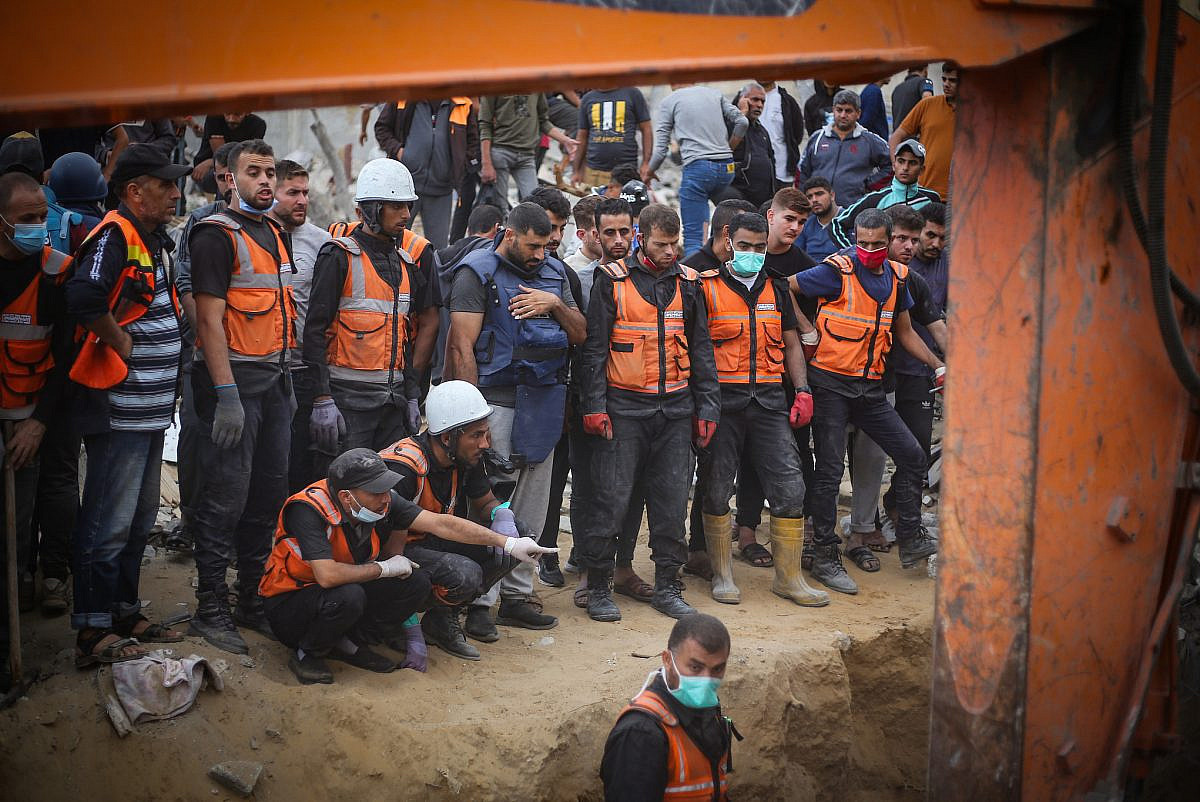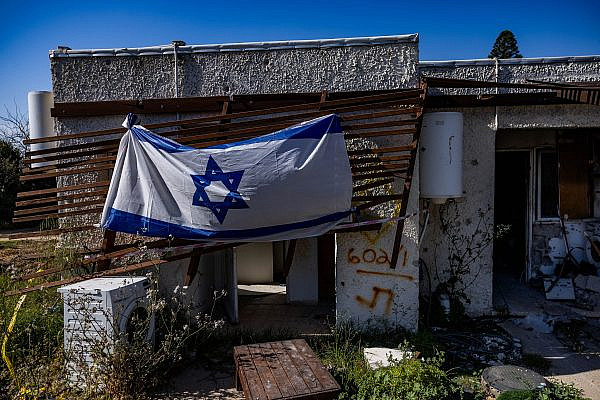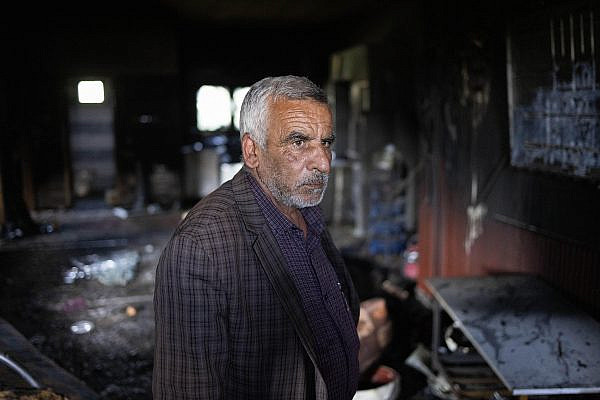“I cannot sleep, not even for one minute. I am constantly haunted by the voices and screams of people under the rubble as they beg us to pull them out.”
This is how Ibrahim Musa, a 27-year-old from Al-Bureij refugee camp in the center of the Gaza Strip, described his life since the start of Israel’s bombardment. Not only is he struggling to survive from one day to the next like everyone else in the besieged enclave, Musa is also one of the more than 14,000 rescue workers comprising Gaza’s civil defense teams, who lead the efforts after each Israeli airstrike to save the lives of those trapped beneath the rubble.
Although Musa has worked in Gaza’s civil defense for five years — including through multiple Israeli aggressions on the Strip as well as times of relative “calm” in which the job involves rescuing people from more routine kinds of emergencies — he has never experienced anything like what is happening now. According to Gaza’s Health Ministry, more than 8,000 people have gone missing since the war began, the vast majority of whom are thought to be stuck under rubble. Many of them have likely died despite the best efforts of civil defense workers like Musa who are unable to contend with the scale of destruction being ravaged upon Gaza in recent weeks.
“We don’t have the equipment to remove the rubble,” Musa explained. “If it’s a building of several floors, there’s not much we can do. It takes long hours and many attempts to make any progress.”
Upon arriving at a scene of destruction in the aftermath of an Israeli airstrike, the civil defense workers must quickly try to get a sense of what they are dealing with. “We usually don’t know who is stuck underneath or how many people we are looking for, so we call into the rubble asking if anyone is alive who can tell us how many people lived in this home,” Musa said. “We scream until someone hears us. Sometimes we get a response immediately, but often we simply hear groans, which we try to follow in order to save those people.”
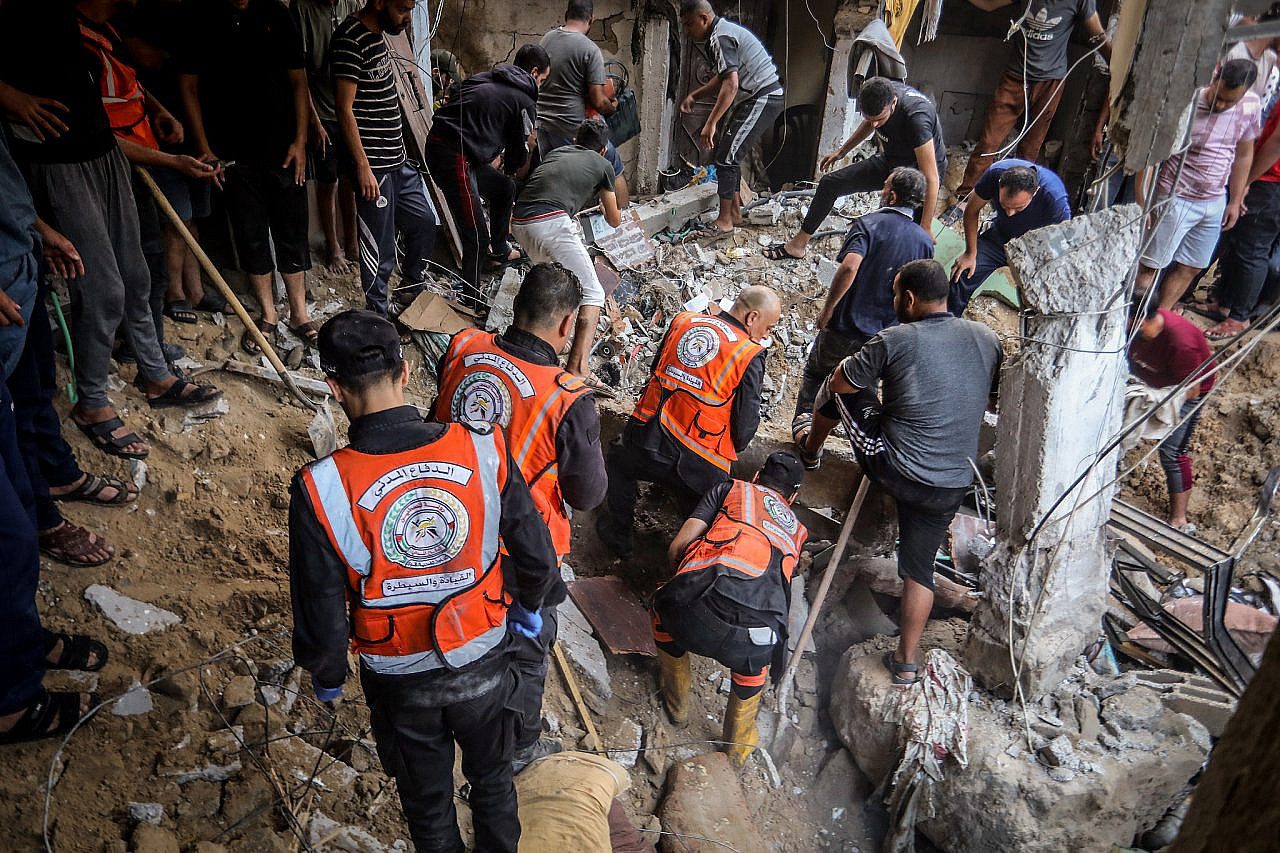
A scenario that Gaza’s rescue workers have been encountering regularly is having to try to calm children who are stuck beneath the ruins of their home. “The children call out from the rubble asking about their family members,” Musa continued. “We sometimes lie and tell them everyone is okay so that they don’t go into shock. Other times, they call out to tell us that a family member lying next to them has been martyred.”
For Musa, it often feels like he and his colleagues are fighting a losing battle. “It’s not one or two houses being bombed, but entire residential complexes,” he explained. “The whole area is completely erased and becomes a single pile of rubble. We need to dig with our hands to remove injured people who are still alive. We try to be careful because the weight of the rubble on their bodies could mean that we could injure them, even costing them limbs, in our attempts to save them.”
‘My day began on October 7, and it hasn’t ended yet’
Ahmed Abu Khudair from Deir al-Balah in central Gaza is another member of the civil defense. Like Musa, he described this war as being “more aggressive and violent” than all of Israel’s previous assaults on the Strip; in fact, he believes that the Israeli army is actively seeking to inflict as much damage as possible on Gaza’s civilian population.
Civil defense workers themselves are not immune to Israel’s attacks: at least 32 have been killed since the start of the war, including seven members of Abu Khudair’s own team. He thinks this is no mistake.
“The occupation forces deliberately target the civil defense and ambulance teams,” Abu Khudair said. “I was injured while working at a house that had been bombed in southern Gaza. We recovered the bodies of three martyrs and saved several wounded people, but then the house was bombed again. When I went up to the roof of one of the neighboring houses to search for people, we were exposed to two more missiles.”
Musa concurs with Abu Khudair’s assessment: “Everyone in Gaza is a target.”
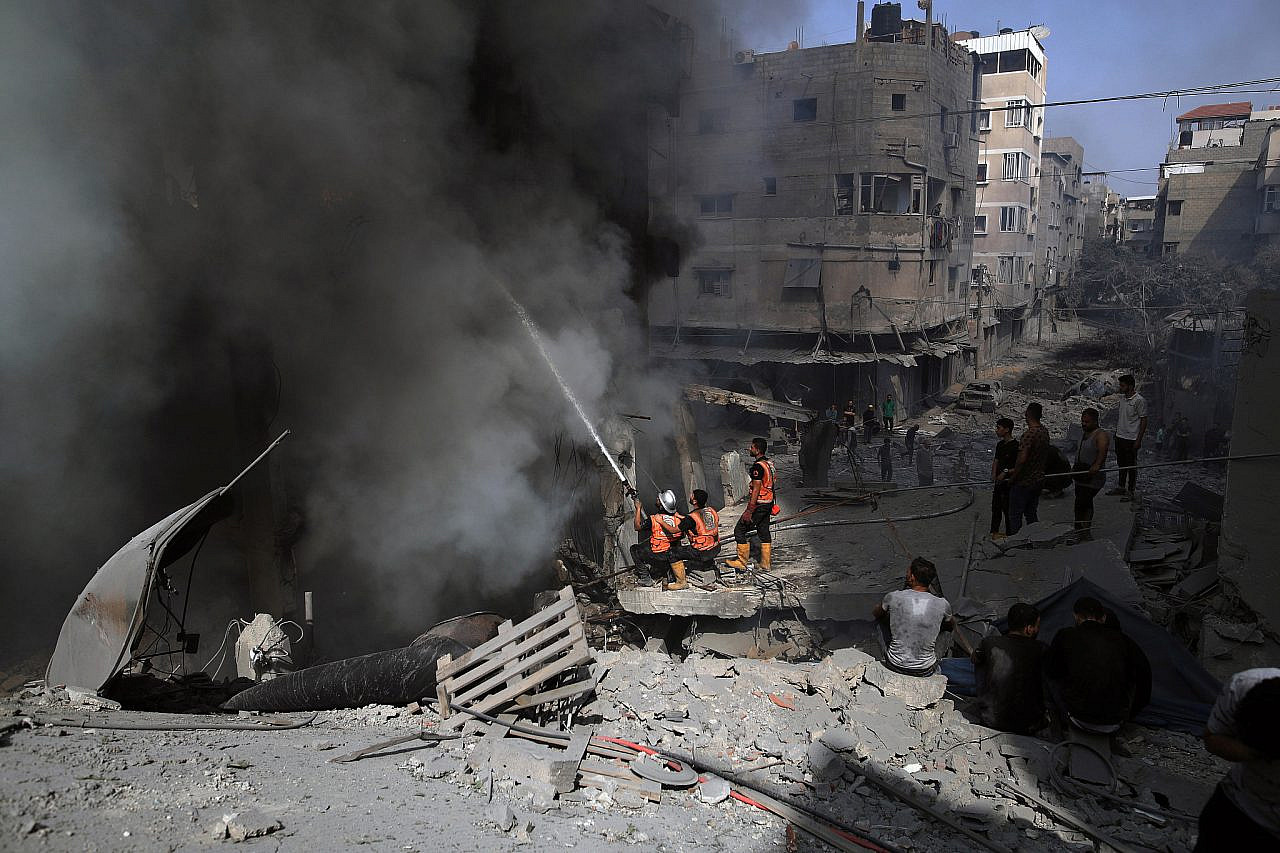
Despite regularly working 24 hours straight, civil defense workers are forced to accept the fact that they are unable to save all the people trapped under the rubble. “There is no equipment,” Abu Khudair said, explaining that they lack bulldozers for removing large blocks of concrete and electronic devices that could determine victims’ locations. “We operate only with human power.”
One particularly devastating situation that has been seared into Abu Khudair’s memory followed a midnight bombing near a gas station in the southern Gaza town of Al-Qarara. “I went to the site and at first I could not find any victims,” he recalled. “Then I heard moaning and headed toward the sound. I dug among the rubble and found two stuck legs, which I freed — they belonged to a 12-year-old girl named Aisha.” The girl told him that eight of her family members were trapped under the rubble, in addition to other families, including 9 very young children.
Despite the best efforts of Abu Khudair and his colleagues, they simply did not have the means to save them. He described it as “one of the harshest moments I have experienced — leaving a place knowing that there are people alive under the rubble, but you cannot do anything for them, and some of them will surely die.”
In addition to trying to save people they don’t know every day, rescue workers also have their own families to worry about. Musa has been away from his home and family and working around the clock since the first day of the war, staying at Al-Aqsa Martyrs Hospital with his colleagues.
“During times of war, those of us on rescue teams never know when our days will start or end,” he explained. “For me, my day began on October 7, and it has not ended yet.”
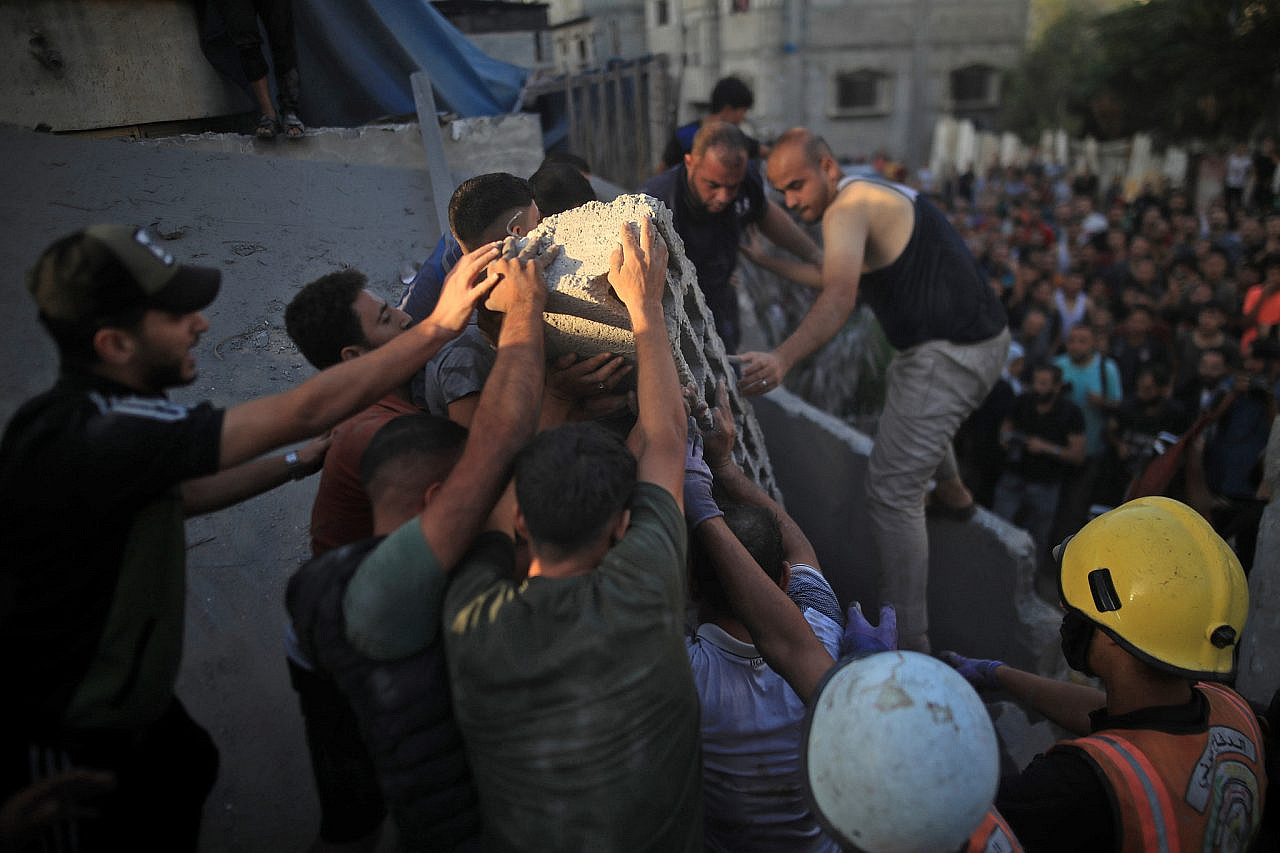
Being away from his family means Musa doesn’t know how they are, only receiving updates by phone. “Some days they take shelter in one of the schools due to the heavy bombing of our neighborhood in Al-Bureij camp, and other days they return home,” he said. “My children miss me as much as I miss them.”
Musa has seen his wife and two children only once in more than two months — in the aftermath of an airstrike near their home. “They told me that there had been a bombing of a house in the camp,” Musa recalled. “I was very worried about my family. As the civil defense vehicle drove, we got closer and closer to the street our home is on, until I found myself at the door of our building.”
The bombing, Musa continued, had targeted the home of his uncle, which is in the same building as his own family’s home. “I heard everyone screaming and crying. I went looking for my uncle and his children and whoever was in the house. I learned that my 19-year-old brother Abdul Rahman had been with them, but I couldn’t find a trace of him. His body had been cut into pieces, and my sister recognized him only from the clothes he was wearing; she had bought them for him as a gift from Egypt just a few days before the war.
“I saw my kids and wife then, for a few moments,” Musa went on. “They were safe, but terrified.”
Most read on +972
Despite the horrors they are facing, Musa and Abu Khudair both find real purpose in their work. “We feel that these are our children, our siblings, our families whom we are saving,” Musa explained. “We feel a sense of victory when we succeed in safely removing someone from the rubble. But when we hear the cries of help from children under the rubble, none of us can hold back our tears.”
“This is our work,” said Abu Khudair. “Even though Israel does not respect international law, the law is on our side and we are protected by the will of God.”

